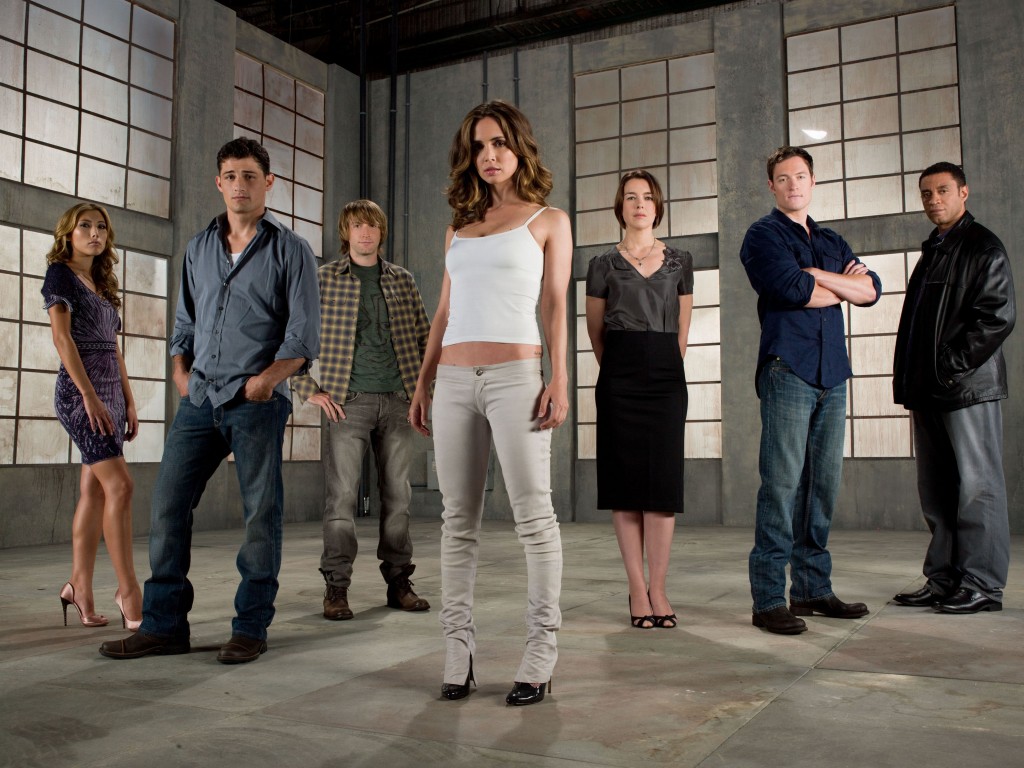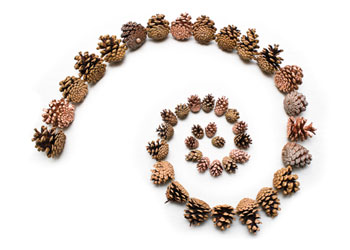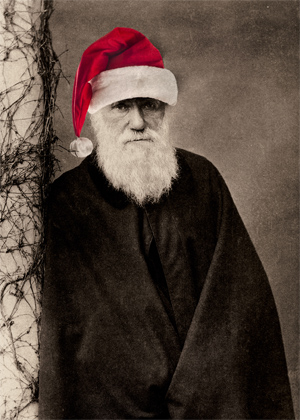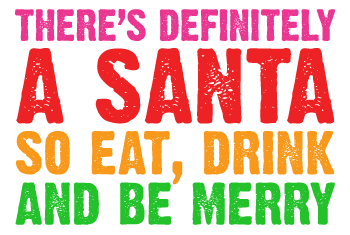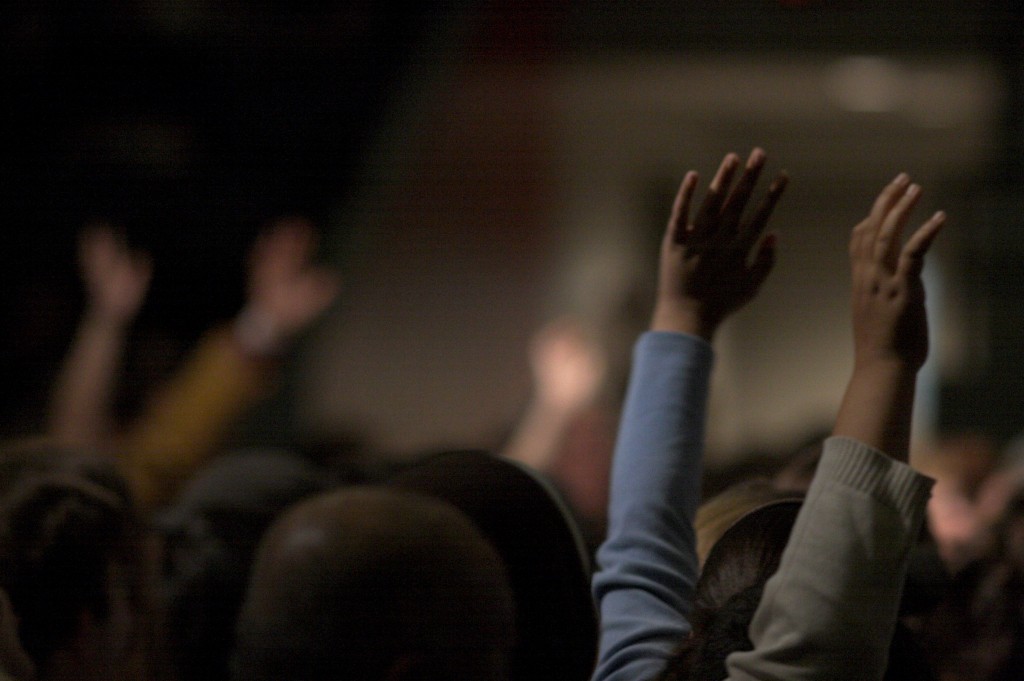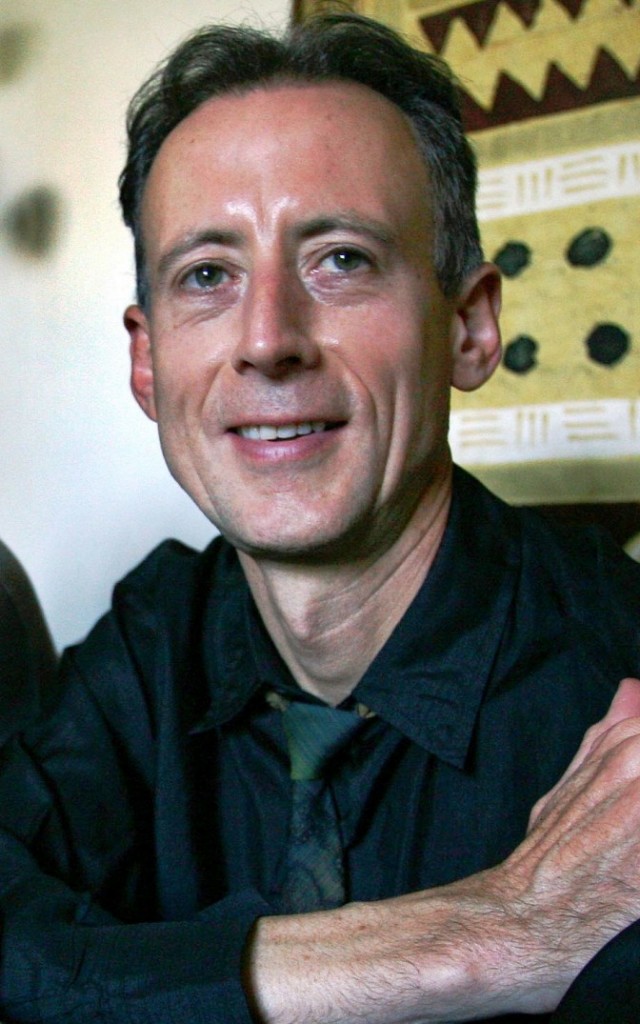Lorain Behrens offers a personal reflection on two funerals she recently attended: one Jewish, and one humanist.
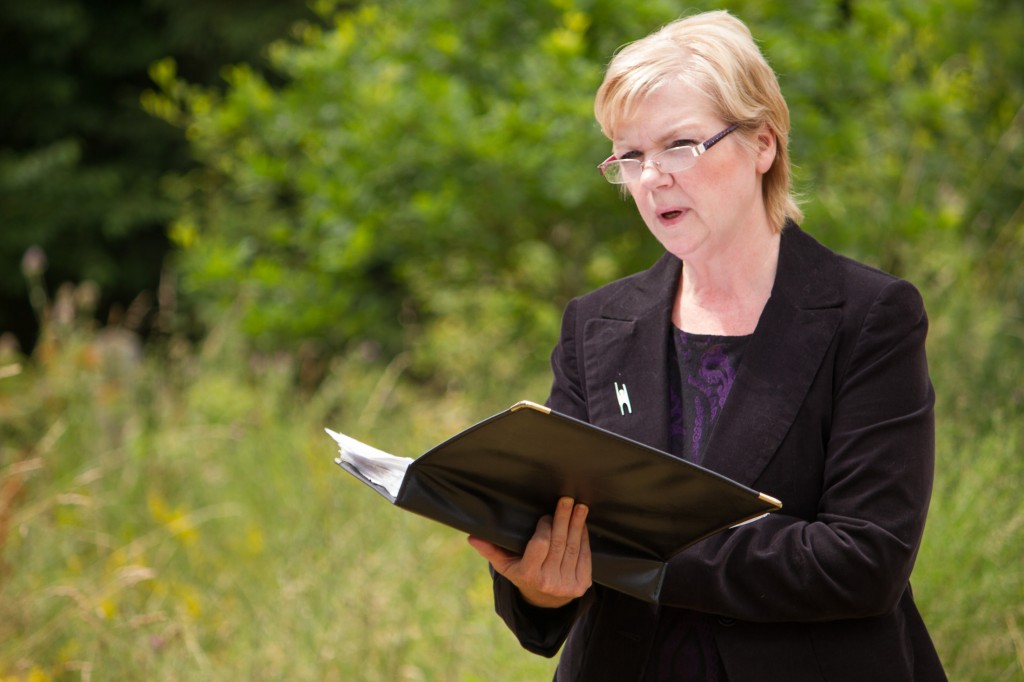
Humanist Ceremonies funerals are popular for their personal and fitting focus on the deceased, paying tribute to the way they lived their life, the connections they made and left behind. Pictured: funeral celebrant Cath Sutherland.
My mother-in-law lost her battle against cancer in August; my mother died suddenly six weeks later. My husband’s mother attended a nearby synagogue. One short phone call later and the funeral was arranged for the next day. We had hardly time to accept that she had died before we were lifting soil on to her coffin. We chose to mark my mother’s life, by contrast, nearly three weeks after she died with a humanist celebration.
Angela lived in the Jewish heartland of Manchester, in a flat in Prestwich. Although not outgoingly religious, she was true to her beliefs and she wanted the traditional Jewish funeral. The rabbi was contacted and everything was swiftly put in place for the service and burial a mere two days after she had died in hospital. Around 50 friends and relatives gathered at the interdenominational graveyard where the rabbi spoke his piece and then dirt was shovelled ceremoniously on to the coffin. More traditions followed back at her flat, where the four main mourners sat on lowered chairs and ate a meal of a bagel, herring and a boiled egg. The women were supposed to remain in the kitchen while the men mingled with the rabbi in the lounge, but some traditions are meant to be broken!
We were just coming to terms with Angela’s death when my mother Sylvia, who had become quickly quite frail, had collapsed in pain and was taken to hospital. Two days later she was on life support. She never regained consciousness, and died two weeks later.
Mum had always insisted she wanted a no-fuss funeral. ‘Just put me in a cardboard box and cremate me,’ she said. It’s easy to laugh when your loved one is still alive.
However, the funeral director explained, cardboard coffins were actually much more expensive than basic wooden ones – apparently the process of making the cardboard itself is extensive, which is where the cost comes in. He then showed us a brochure from an organisation called ‘Colourful Coffins’ who offered a choice of designs, as well as the opportunity to design your own.
My mother loved poppies. Her father had served in the First World War, and on Remembrance Day every year she would walk down to the end of her garden and spend a few moments in quiet contemplation. So the choice, despite the sad circumstances, and thus we selected the poppy designed casket.
Mum always described herself as ‘a happy atheist’. Her husband, my step-father, saw religious people as ‘eccentrics’. I personally am what you might call a ‘militant’ atheist (whatever that’s supposed to mean).
So it was inevitable and accepted that we would say goodbye to my mother through a humanist ceremony. The British Humanist Association was wonderful and its accredited celebrant, Hilary Leighter, spent two hours with my stepdad and brother talking about my mum, who she was, what she was like, in order to put together a tribute for the occasion. Music was chosen. My mother had loved ‘It’s Alright,’ the theme from the BBC TV show New Tricks, which proved difficult but ultimately not impossible to get hold of. To that we added a couple of operatic arias, and finally ‘As Time Goes By’, a song which had meant everything to her in the 42 years she had been married to Derek.
The ceremony took place in a chapel at a crematorium in Amersham. ‘There won’t be any crosses or religious symbols, will there?’ I had asked the funeral director. He assured me that they would all be removed. However, when I went to place a stem of a hoya flower on my mother’s coffin, I spotted a Jesus on a crucifix half hidden by the curtain. The hymn books were also in place on the pews but ignored by our gathering. Some things you just can’t avoid, it seems.
Hilary, who had never known my mother, even shed a tear or two as she read the tribute, so strong was the feeling of loss among us all in that small room. But there was no mention of any god, any afterlife, any of that nonsense. Even a Sikh neighbour who attended came up to me afterwards to say what a lovely service it had been.
It was mid September and the weather was still warm. Many people who had known my mum came back to the garden at her home in Gerrards Cross, Buckinghamshire, to eat, drink and chat in the early autumn sunshine. Despite our sadness, it was a day full of joy.
There was some dissent; Derek received an email from a distant cousin who had been at the service, even though he had not made himself known. He wrote a few weeks later to complain that there had been no religious element to the ceremony; Derek sent the email to trash without responding.
My mother’s ashes will be buried in a plot at the Stoke Poges Memorial Garden. We will have a bench where we can sit and look out at the fountains and gardens, remembering her and enjoying some quiet contemplation. In the summer, planted poppies will grow there too.
Angela has been buried near to her mother’s grave and we will return at some point in the next few months for the official unveiling of the headstone.
Angela was 81, Sylvia was 78. They both had three children — a girl and two boys. One was my husband’s mother, one was my mother. Two women, two mothers, two very different funerals.

